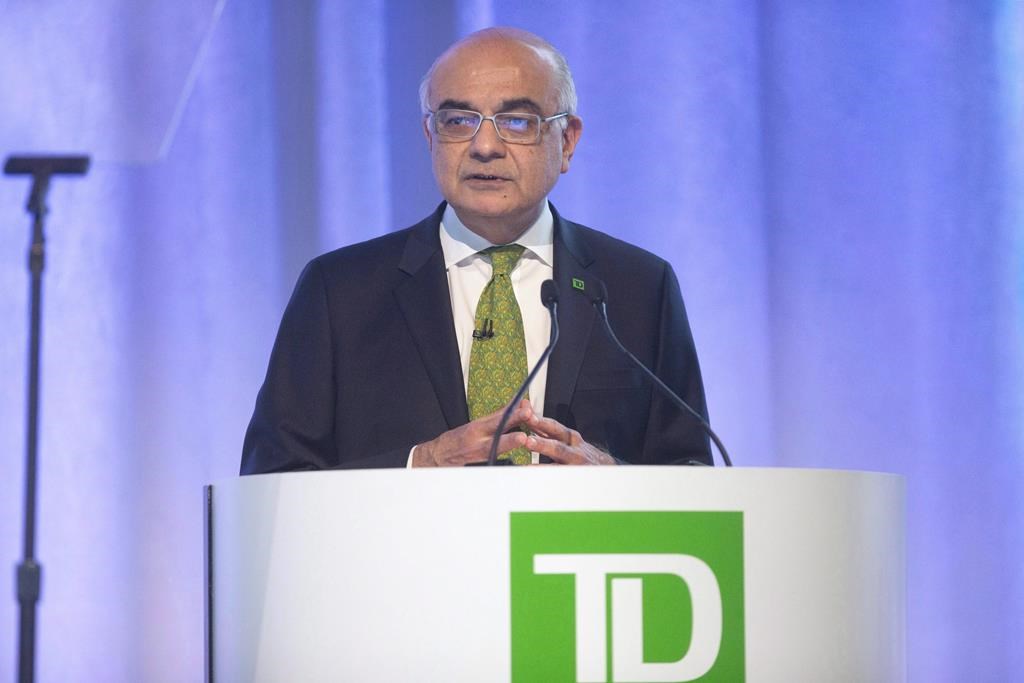
ESG, SRI, and impact investing: How do they differ?
3rdtimeluckystudio / Shutterstock
A look at sustainable investing and how to choose between ESG, SRI, and impact investing.
I was in university when I first heard about the term double bottom line – a metric used to describe not just a company’s financial profit and loss, but also its performance in terms of having a positive social impact. Today, a growing number of investors care about that double bottom line and want to put their money into stocks or funds that are both profitable and reflect their social values — known as “sustainable investing.”
There are three styles of investing that socially conscious investors can choose to fulfill their mandate: environmental, social and governance (ESG), socially responsible investing (SRI) and impact investing.
These terms are often used interchangeably, but in reality, they each have different meanings for investors:
- ESG considers a company’s environmental, social and governance practices, coupled with traditional financial measures.
- Socially responsible investing (SRI) involves actively removing or choosing investments based on specific ethical guidelines.
- Impact investing is about helping a business or organization complete a project, deliver a program, or create something positive to benefit society.
This article will look at sustainable investing and explain more broadly the difference between ESG, SRI, and impact investing.
What is “sustainable investing?”
Sustainable investing is about directing investment capital to companies that care about making a positive social impact. It has become increasingly important as society battles threats from the climate emergency and environmental destruction, but also still struggles to promote gender equality and the protection of human rights. Sustainable investing also means looking at how a company handles security and privacy, the make-up and independence of its board of directors, and other factors such as tax transparency and conflicts of interest.
This type of investing has been around for centuries, with investors not only boycotting certain companies for ethical reasons, but also avoiding entire countries that were involved in the slave trade, wars, or that violated basic human rights.
Most recently in Canada, activists put pressure on the Canadian Pension Plan Investment Board to divest its stake in two American private prison operators who were involved in the detention of Mexican migrants at the U.S. border.
Canadians want to invest their money in companies and countries that care about more than their quarterly earnings and GDP. Investors want to know their impact on the environment, labour relations, privacy and security.
So, how do you rank all of these factors and come up with a useful metric to guide your investment decisions? That’s where ESG comes into play.
Getting started
Not long ago, individual investors had little to no choice in the market for sustainable investing. The funds that were available were expensive and made up of questionable constituents. Now investors have plenty of options to invest in mutual funds, ETFs, and customized portfolios with a specific focus on sustainable investments.
Robo-advisors
One of the easiest and most cost-effective ways to get started with sustainable investing is by opening an account with one of Canada’s top robo-advisors and investing in their SRI portfolios.
ModernAdvisor was the first to offer an SRI portfolio, but now clients at Wealthsimple Black and Questwealth can also invest responsibly with a customized portfolio. Wealthsimple is also the only robo-advisor to offer a Halal investing portfolio, which only invests in companies and investments that comply with Islamic law.
SRI options are offered alongside their conventional investment portfolios for the same management fee, although the cost to hold the underlying ETFs will typically cost more for the SRI portfolio.
Best robo-advisors for socially responsible investing
Online brokerage
Alternatively, an investor could look to build his or her own customized SRI investing portfolio by opening a discount brokerage account online. This could be done with stocks, ETFs, or a combination of the two – depending on what type of investments you’re looking for.
For doing this, Questrade is the best option, since you can buy ETFs for free and also get 50 free stock trades when you open an account with and fund with a minimum of $1,000. When building your own portfolio, remember to diversify your investments across different countries and industries.
To help you get started, iShares has the most complete set of sustainable investing funds for individual investors. Here’s a look at its Canadian, U.S., and International offerings for the socially responsible investor:
Investors looking to drill down further into specific niches can also find funds such as a Low Carbon Target ETF (CRBN), Fossil Fuel Free ETF (SPYX), a ‘Cleantech’ fund (PZD), and a Workplace Equity Fund (EQLT).
Environmental, social, and governance (ESG) criteria
ESG stands for Environmental, Social, and Governance. It’s a set of criteria used by socially conscious investors to broadly screen their investments depending upon how they score.
Environmental criteria might include factors such as energy consumption, pollution, climate change, waste production, natural resource preservation, and animal welfare.
Social criteria could include factors such as human rights, child and forced labour, community engagement, health and safety, stakeholder relations, and employee relations.
Governance criteria include factors such as quality of management, board independence, conflicts of interest, executive compensation, transparency and disclosure, and shareholder rights.
A research firm called Sustainalytics rates the sustainability of companies based on their ESG performance. It provides portfolio screening, analytics, and “controversy alerts” to both individual and institutional investors to help guide their ESG investing.
An interesting and surprising fact about ESG is that it doesn’t screen out specific industries as “good” or “bad”. Instead, you might find an oil & gas firm like Dutch Shell leading their respective industry because of its involvement in setting carbon reduction targets and investing in electric vehicles.
As with conventional investing, ESG investing aims to maximize financial return above all other factors. ESG is about economic value, first and foremost. Social impact comes second.
Socially responsible investing (SRI)
Socially responsible investing focuses on the companies with the highest ESG ratings but takes it one step further by removing companies according to specific ethical guidelines. These excluded companies could be involved in the business of tobacco, controversial weapons, and civilian firearms, or those embroiled in severe controversies.
Socially responsible investing began as a way to allow investors to avoid companies they disliked for ethical or values-based reasons. SRI uses ESG factors to then apply negative or positive screens to narrow their investment choices.
A negative screen, for instance, could include alcohol, tobacco, gambling, or environmental damage – which would remove any company involved in those businesses. A positive screen, on the other hand, might include companies that contribute to charitable causes or promotes gender equality in the workplace.
Socially responsible investors consider financial return only after their values have been satisfied. SRI is an attempt to incorporate ethics and social concerns into portfolios. SRI is about individual values.
Impact investing
With impact investing, the investments need to have a positive impact in some way. The goal of impact investing is to help an organization accomplish specific goals that are beneficial to society or the environment. Investing in a non-profit dedicated to the research and development of clean energy, regardless of whether success is guaranteed, is an example.
One emerging area is Green Bonds, or environmental impact bonds – financial instruments that leverage private investment to support high-impact environmental programs. The repayment of the bond is correlated to specific performance outcomes.
Green Bonds are used to fund environmental and climate-friendly projects such as renewables, energy efficiency, water efficiency, bioenergy, low carbon and green buildings. The Climate Bonds Initiative expects annual Green Bond issuance to reach $1 trillion as soon as 2020.
Impact investors focus on social outcomes first, while financial outcomes are secondary.
Pros and cons of sustainable investing
Sustainable investing is one of the hottest topics in the investment industry today. Many of the world’s largest asset managers are now allocating funds to sustainable investing.
But do sustainable investments lead to higher, lower, or similar performance outcomes? At this point there is no consensus – the research is unclear.
The pros of sustainable investing are more value-based: you’ll sleep better at night knowing that you’re taking a stand against bad business behaviour while rewarding ethical companies. As a socially conscious investor, you’re putting your money where your mouth is, so to speak.
The cons of sustainable investing are that you’re potentially giving up some financial return and paying higher fees to own only those companies that meet your ethical and social criteria. The definition of SRI is also highly subjective. For example, some investors might shun nuclear energy because of the threat of accidents, while others might view nuclear as a cleaner substitute for fossil fuels.
However, some evidence indicates that sustainable investing performs equally as well, if not better than, traditional investments. A 2015 Carleton University study showed that responsible investment (RI) equity mutual funds in Canada financially outperformed their respective benchmarks by 63%. One reason for this is that it can minimize exposure to risks that may not show up within corporate financial statements, which can also boost long-term financial performance. So, your social conscience could have a payoff in the long run.
Conclusion: How to choose a sustainable investing approach
Sustainable investing is a deeply personal choice and so your approach really comes down to your core values and beliefs.
Like conventional investing, ESG investing puts financial considerations first, with a tilt toward environmental, social, and governance factors.
Socially responsible investing is a way for individuals to act on their values and influence corporate practice and public policy. SRI balances financial outcomes and social impact.
Finally, impact investing puts social outcomes first, regardless of whether the outcome is financially successful. In that regard, impact investing leans closer to philanthropy.
Ultimately, there’s no “one-size-fits-all” approach to sustainable investing. It really comes down to figuring out what’s important to you in terms of your values, and potential deal makers and breakers for your investment portfolio. But now that you’re armed with the info, you’ve already got one foot forward to becoming a socially conscious investor. Go for it!
Disclaimer
The content provided on Money.ca is information to help users become financially literate. It is neither tax nor legal advice, is not intended to be relied upon as a forecast, research or investment advice, and is not a recommendation, offer or solicitation to buy or sell any securities or to adopt any investment strategy. Tax, investment and all other decisions should be made, as appropriate, only with guidance from a qualified professional. We make no representation or warranty of any kind, either express or implied, with respect to the data provided, the timeliness thereof, the results to be obtained by the use thereof or any other matter.





